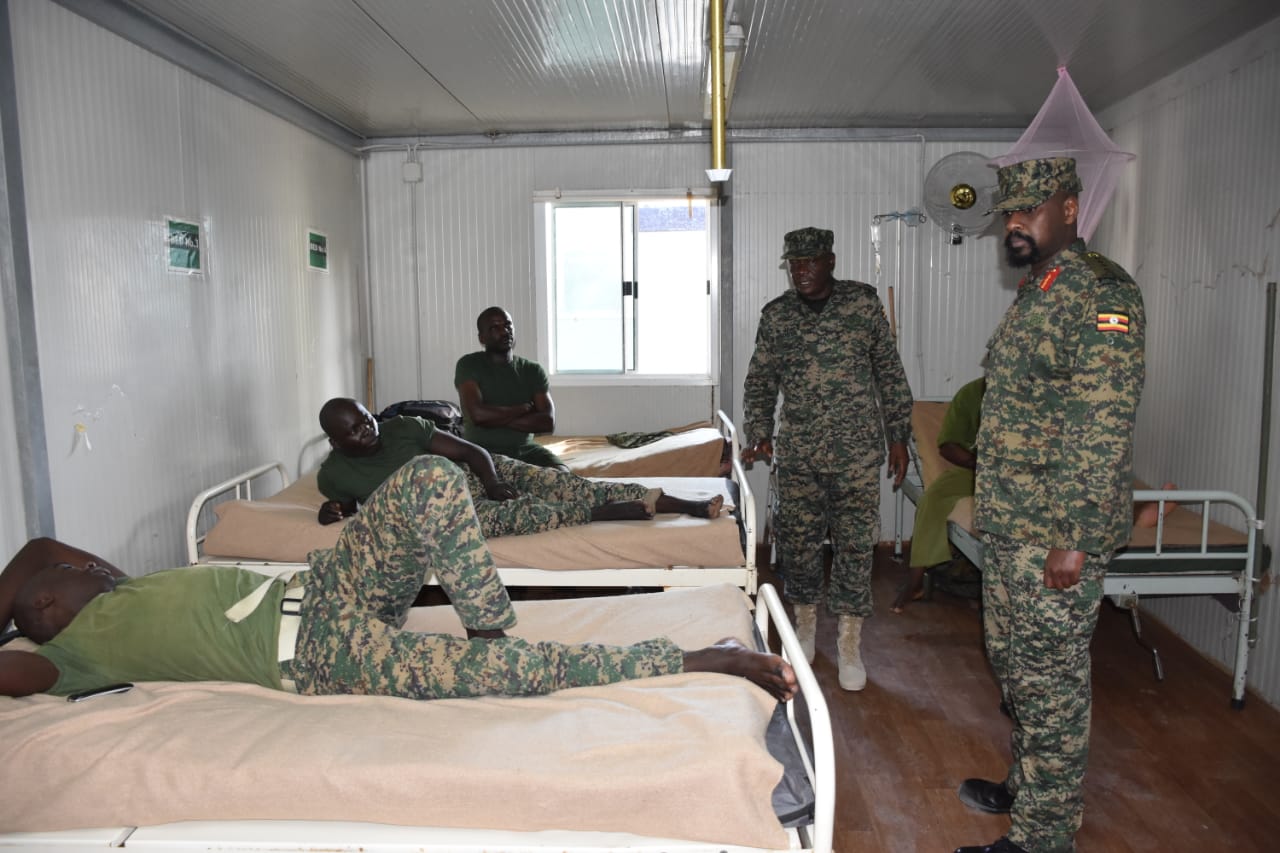Prime
When you have an army of occupation and a population cowed into submission

Author: Gawaya Tegulle. PHOTO/NMG
What you need to know:
- An army of occupation can send citizens into depression, despair, because its presence and its apparent invincibility wreak a sense of helplessness and hopelessness among the natives.
Between the years 1010-990 BC, a brutal king from the land of Ammon (present day Jordan) laid siege to Israel, at a time when Israel was still finding its soul and was, therefore, militarily suspect.
Nahash, for that was his name, gave a very stern condition: if the Jews wanted peace with him, he would only spare them if they agreed to allow him gouge out the right eye of every man. Then he’d of course, run the show and his army would keep the peace.
The Jews, always adamant and forever stubborn, cleverly played for time and asked for chance to consult – which Nahash foolishly granted. The Jews, properly horrified at the prospect of occupation by such a monster, roused themselves, reorganised their military and took position. When the negotiating team came back to Nahash, they told him, and casually so, to, if he so liked, go and gouge out the eyes of his mother, hopeless! Then they had him for lunch.
Just thought we’d have a vocabulary lesson in international law: “army of occupation”. It is one of the things that every society dreads, and rightly so.
The classic scenario is when invaders come to a country or a territory, overrun it, then they impose themselves on the population. Those who are making noise about the ongoing Hamas-Israeli conflict, in which Israel is being told off as an army of occupation, may do well to read the Good Book, because it has endless tales of how Israel itself, when it had all of the land of Israel to Jews, suffered occupation from time to time.
Gideon and the mighty Samson, for example, rose up as leaders in times when Israel was under military occupation – by the Midianites in the time of Gideon (1191-1144 BC), and by the Philistines in the time of Samson (born around 1059 BC).
An army of occupation can send citizens into depression, despair, because its presence and its apparent invincibility wreak a sense of helplessness and hopelessness among the natives.
So, how do you recognise one when you come across it?
Let’s begin by saying that in international law, we say a territory or country is “occupied” when it is firmly under the authority of “a hostile army”. International law theorists chose their words carefully: “a hostile army”. That suggests it doesn’t have to have come from without.
A military outfit can be army of occupation because it is one in the actual sense - they came from without and took control.
But it can also be an army of occupation, constructively. That means by inner fabric, external manifestation and for all intents and purposes, they behave like an army of occupation. And like most things, armies of occupation often do have a middle ground – a hybrid of sorts, where an army has overtures of a national army, but its inherent characteristics are those of an army of occupation.
Whatever the case, there are things typical of armies of occupation.
The primary one is that they are hostile to the natives; meaning they are not a tool of liberation, but an instrument of coercion and oppression. And domination too: they spread everywhere, in every sector, like water hyacinth on a lake.
And in the same breath, no matter how nice your constitution may look like and how many laws you have under it, the army of occupation operates above and outside the law. The army is a law unto itself. No matter how well-read the judges in the courts of law may be, their orders will be ignored, trashed or laughed at.
So the army of occupation will arrest, abduct, torture or kill and the courts will do nothing. Even the judges will be too afraid to handle some cases, because the military is involved.
When the occupiers come for your land – it doesn’t matter how many graves of your forefathers are on it; it will go…and you really can do nothing about it.
An army of occupation focuses, not on the security of the populace, but on the primitive and parochial interests of the warlords that run it and the private interests of its generals. You can be raided by invaders, when the troops are asleep or making love in their tents. Just a vocabulary lesson, I said.
Mr Gawaya Tegulle is an advocate of the High Court of Uganda, [email protected]




